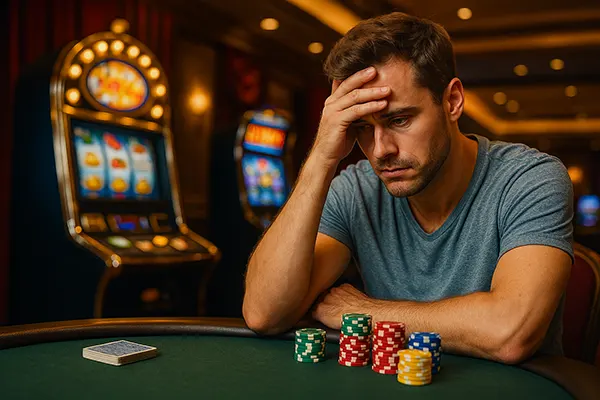Psychology of Big Wins in Casinos: How Jackpots Influence Player Behaviour

Big wins in casinos are not just about luck or numbers—they are deeply tied to human psychology. Whether it’s a life-changing jackpot or a series of smaller wins, these moments can trigger powerful emotional and behavioural shifts in players. Understanding how these dynamics unfold helps casino operators shape their platforms, and helps players stay aware of the mental effects involved.
What Happens in the Brain During a Big Win?
When a player lands a significant win, the brain releases a surge of dopamine—a neurotransmitter linked to pleasure and reward. This neurological response is similar to the high experienced during moments of intense excitement or success in other life situations. The stronger the win, the more powerful the chemical reinforcement.
This dopamine boost can create a lasting memory tied to the event. Players often recall the exact moment of winning, the atmosphere, and even the sounds and colours involved. This emotional imprint forms a positive feedback loop, reinforcing the desire to play again.
In some cases, this reward response can lead to a phenomenon called “loss chasing,” where players attempt to recreate the high of a previous win, even if it means taking bigger risks. While this is not universal, it’s a well-documented pattern in behavioural studies on gambling.
Neurological Conditioning and Habit Formation
Repeated exposure to rewards—especially those that are random, like in slot machines—can form habits over time. These habits are reinforced each time a player experiences a near miss, a small win, or a bonus round that triggers excitement.
Studies show that the variable ratio reward schedule found in most casino games is particularly effective at maintaining engagement. This type of reinforcement makes it difficult to predict the outcome, creating a compelling urge to continue playing.
Ultimately, the brain learns to associate the casino environment with potential rewards. Over time, this conditioning can subtly shift casual play into compulsive behaviour if not managed responsibly.
The Emotional Impact of Jackpots
Winning a jackpot often triggers a flood of emotions—relief, happiness, disbelief, and even anxiety. The emotional intensity depends on the size of the prize and the individual’s personal situation. Some players report feeling overwhelmed or even paralysed after a major win.
This emotional overload can have both positive and negative outcomes. On the one hand, a jackpot can relieve financial stress, provide freedom, and boost confidence. On the other, it may create unrealistic expectations or encourage repeated gambling to replicate the feeling.
Players might also face unexpected social pressures. Friends and family could change their behaviour, or the winner may feel compelled to share their winnings. These dynamics can further influence the player’s mental state, leading to impulsive decisions.
Post-Win Behaviour and Risk Appetite
After a big win, many players experience what psychologists call the “house money effect”—the belief that they are playing with “free” money. This perception can lead to riskier betting patterns, as the fear of loss feels less impactful when using recent winnings.
Interestingly, not all players behave the same way. Some choose to quit immediately, satisfied with their result. Others double down, aiming to capitalise on their perceived winning streak. This divergence highlights the importance of individual temperament and personal control strategies.
Casinos often provide incentives after a win, such as VIP offers or exclusive promotions. While these may enhance the experience, they can also subtly encourage continued play, increasing the likelihood of risk-taking behaviour.

Responsible Gambling in the Face of Big Wins
Maintaining emotional balance after a large win is crucial for sustainable play. Responsible gambling tools, such as session timers, withdrawal locks, and deposit limits, are essential resources to help players stay in control. These features are increasingly common in regulated online casinos in 2025.
Self-awareness also plays a key role. Recognising the signs of overconfidence or impulsive decision-making after a win can help players step back before making risky moves. Many platforms now offer real-time alerts based on play patterns to assist with this.
Players are encouraged to view jackpots as moments of fortune—not guarantees or goals. Educating users about gambling mechanics, volatility, and random number generation reduces myths and misconceptions that often arise after a major win.
Support Systems and Player Education
Online casinos are more proactive than ever in 2025 about integrating educational tools and mental health support. Resources like self-assessment quizzes, access to gambling counsellors, and interactive learning modules are widely implemented.
Support from family and friends is another important layer of prevention. Open conversations about gambling habits and mental health can significantly reduce the likelihood of addiction after a big win.
Ultimately, empowering players with knowledge and tools enables them to enjoy the thrill of winning while maintaining a healthy and responsible approach to gambling.
